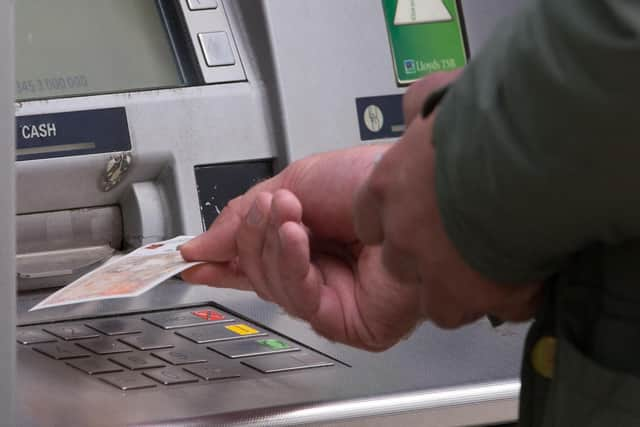How to cope with financial pressures during a pandemic - Sarah Coles
It’s how I ended up making mashed potato for hundreds of elderly people and taking part in terrible experimental opera. This meant that while my friends could slouch to school with their hands in their pockets looking cool, every day I loaded myself up with an ever-increasing mountain of baggage – from hockey sticks to fundraising projects and musical instruments – and slogged up the hill to school.
I didn’t realise at the time I was in training for a pandemic.
Advertisement
Hide AdAdvertisement
Hide AdOver the past year we’ve all faced the challenge of constantly adding to the load while struggling uphill. Anyone who has been dealing with financial pressures brought on by the pandemic, while simultaneously keeping everyone’s spirits up, filling the fridge, clearing the house of detritus and somehow having the energy to feed everyone every single meal, needs every ounce of stamina.


This enormous load is taking a toll on our wellbeing. In January, the ONS recorded the lowest levels of happiness, satisfaction and feelings that life was worthwhile since it first started measuring it – and the highest levels of anxiety. Women tend to be hit harder than men, with higher levels of anxiety, depression and loneliness.
And it could have just as much of a detrimental effect on our finances. If you’re living on a lower income it can take everything you’ve got to make ends meet and keep on top of your bills, so you have nothing left to consider putting money aside for the future.
Even if your income has remained robust and your expenses fallen, you have no brain space left to work out the most sensible thing to do with any extra cash – which is why so much of it is sitting in high street easy access savings accounts paying miserable rates of interest – or current accounts.
Advertisement
Hide AdAdvertisement
Hide AdWhen we’re carrying an overwhelming load, it tends to mean we focus on immediate needs, and shelve anything beyond the end of next week.
While it feels like we don’t pay an immediate price for this, in the long run we’ll all be worse off. If you stop contributing a pension, and don’t pick it up again quickly, for example, you could end up with a horrible hole in your retirement plans. Instead of trying to take it all on, and then dropping things ad hoc, the best approach is to consider everything, prioritise properly, and put down the loads that don’t matter as much.
This starts with a list of every single thing you need to keep on top of. It’s going to feel pretty overwhelming when you see it all on paper, but bear with it. In financial terms it needs to include immediate essentials like paying bills, but also making sure you have enough emergency savings to see you through a crisis and continuing with your pension contributions. Don’t forget your career either. Dealing with the challenge of working through a pandemic has absorbed a huge amount of our attention, but there’s only so long you can shelve essential training and development before things start to stall.
Don’t be afraid to break the tasks down. Freeing up cash to pay pension contributions is a separate job from calculating whether you have enough to live on in retirement, and checking whether your pension investments suit your needs. So if you just put ‘sort out my pension’ on the list, it’s going to feel like a headache you can’t face.
Advertisement
Hide AdAdvertisement
Hide AdNext, put the jobs in order of priority. It’s not easy, because you need to weigh up totally different tasks, but it’s not impossible. It’s not hard to work out that ‘forcing my son to make pastry for school lessons’ and ‘getting my daughter to do wordsearches’ should come below even the most ambitious financial admin.
Finally, look down your list, ask yourself how far it’s realistic to try to push yourself, and draw a line right there. Check everything below the line: if it’s essential, then someone else will need to step up. If it’s a nice-to-have, you can stop worrying about it. You’ll have to come back to it once a month, because things will move about, but for everything you add above the line, you should be pushing something below it.
In the interim, if anyone complains about something that’s not getting done, you can point out it’s a long way down your list, so if it’s a priority to them, they need to do it. It means saying no to people, even if it causes embarrassing silences – which it turns out I could do all along.